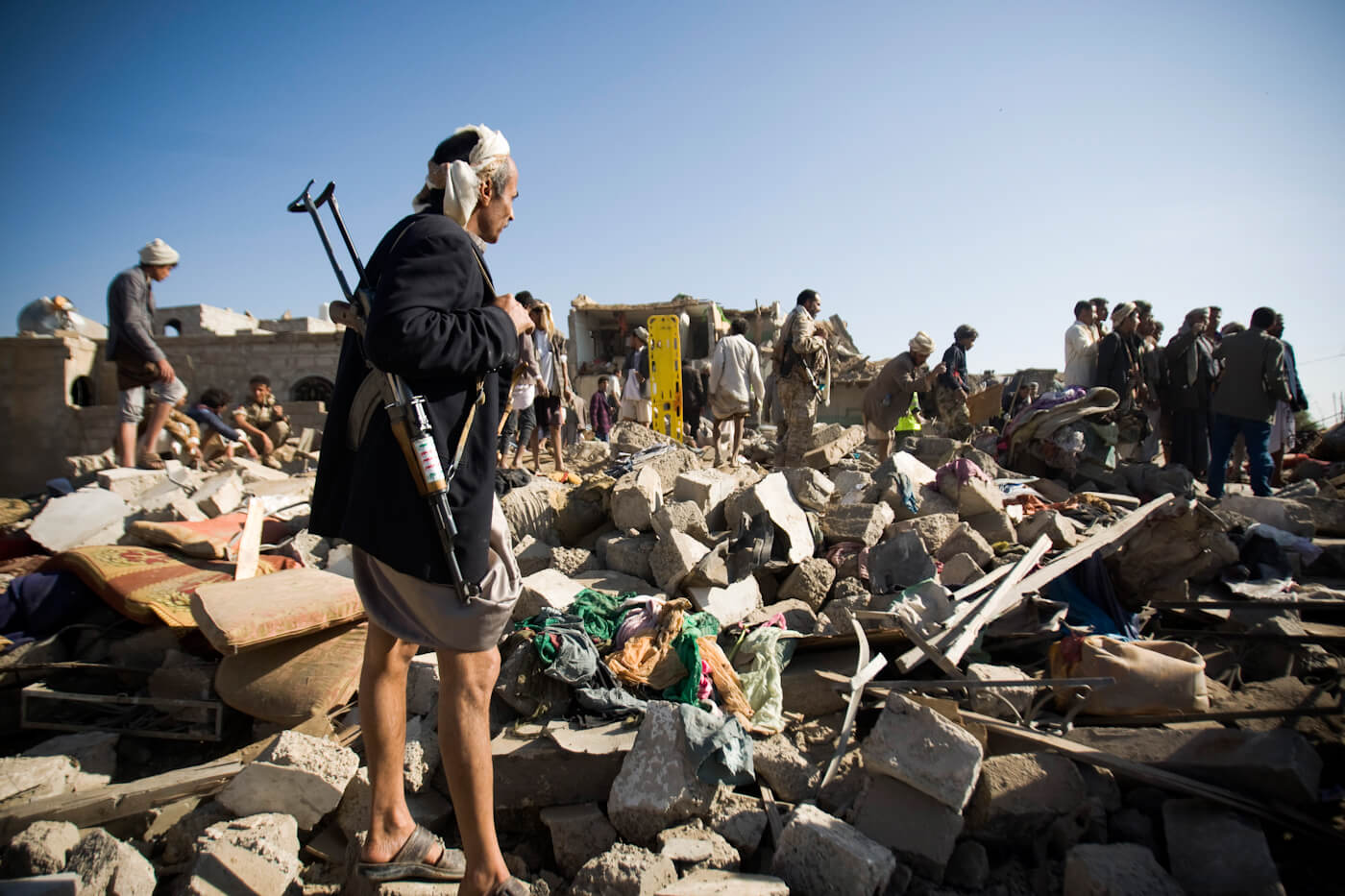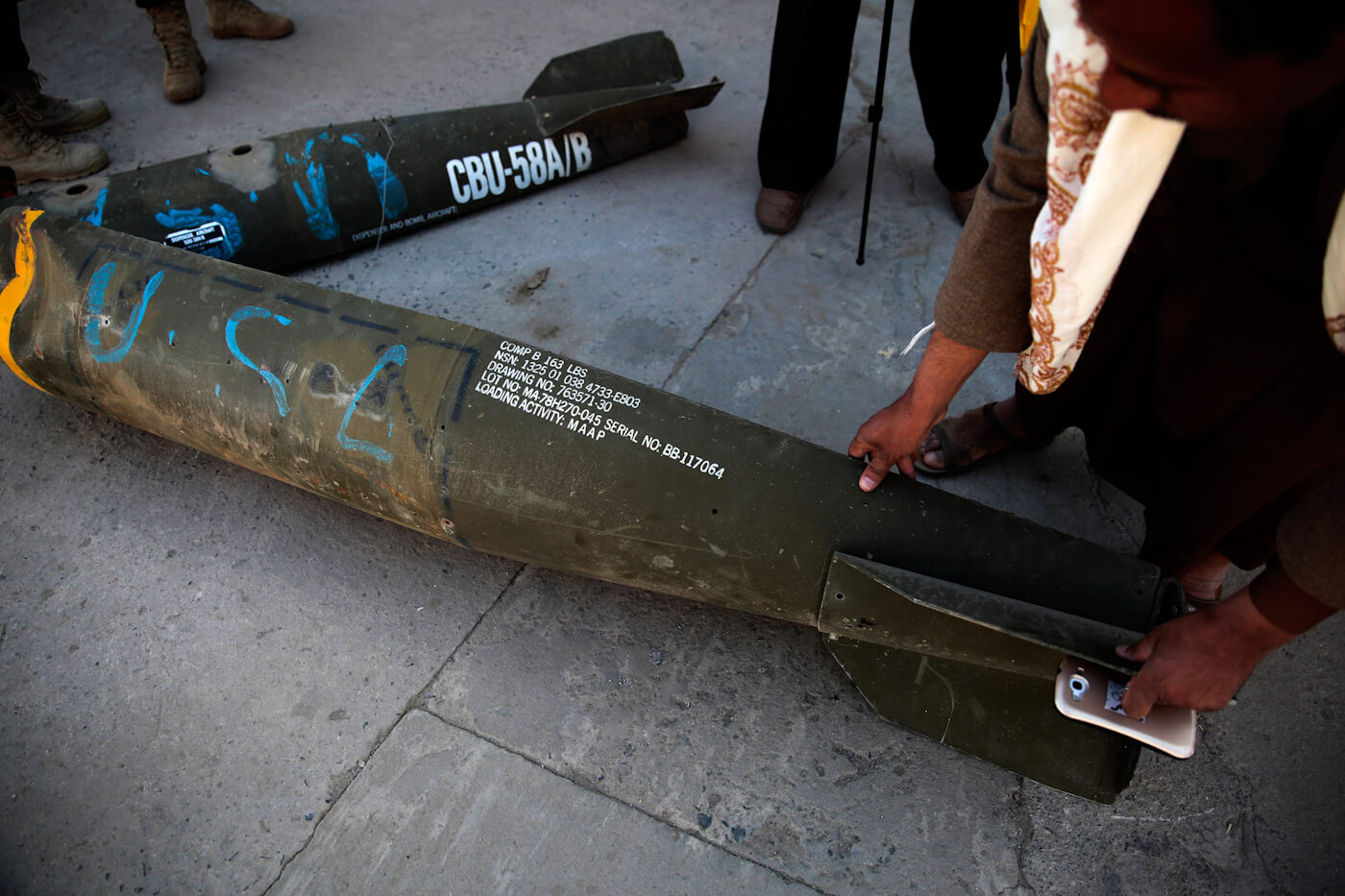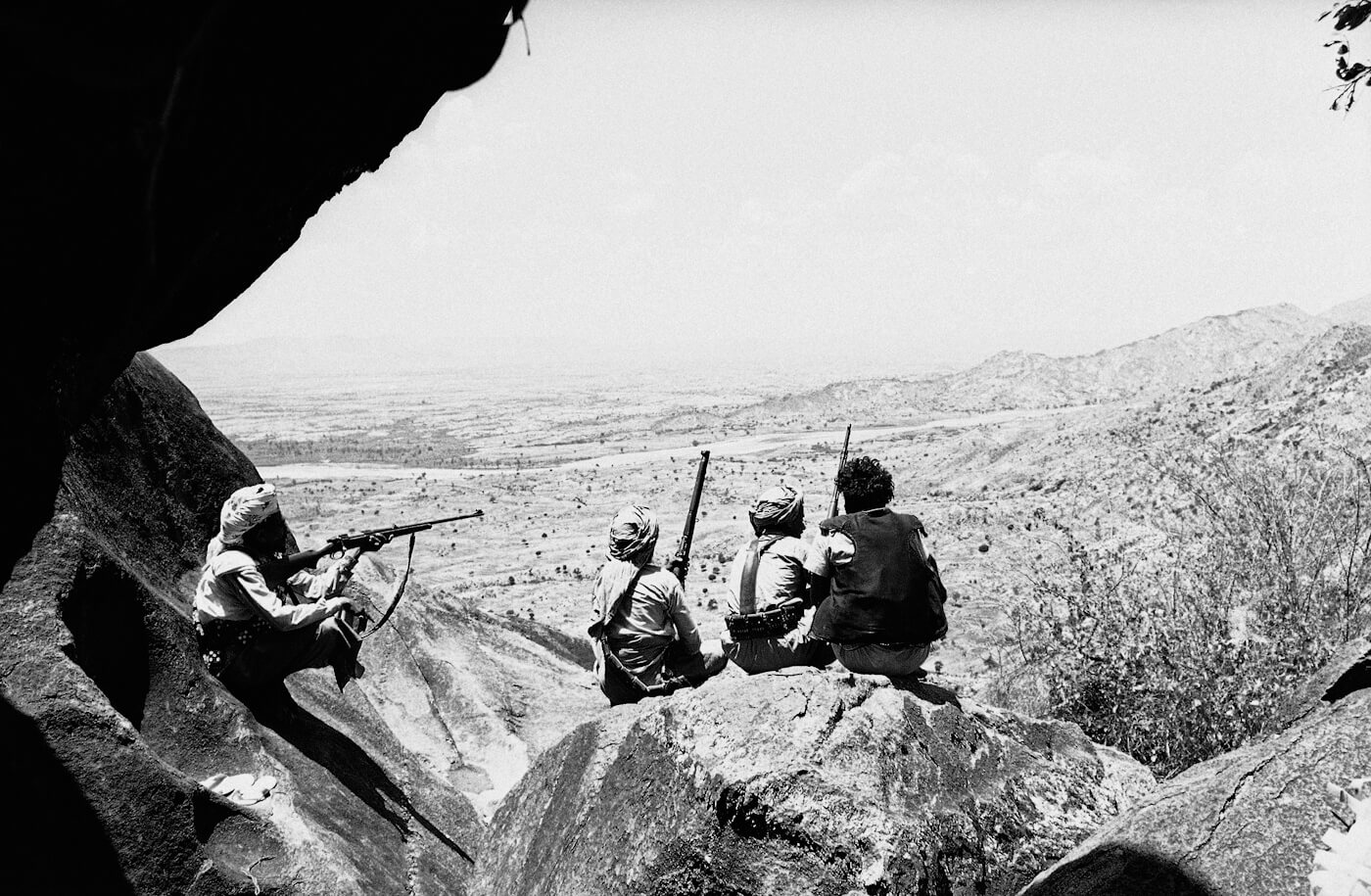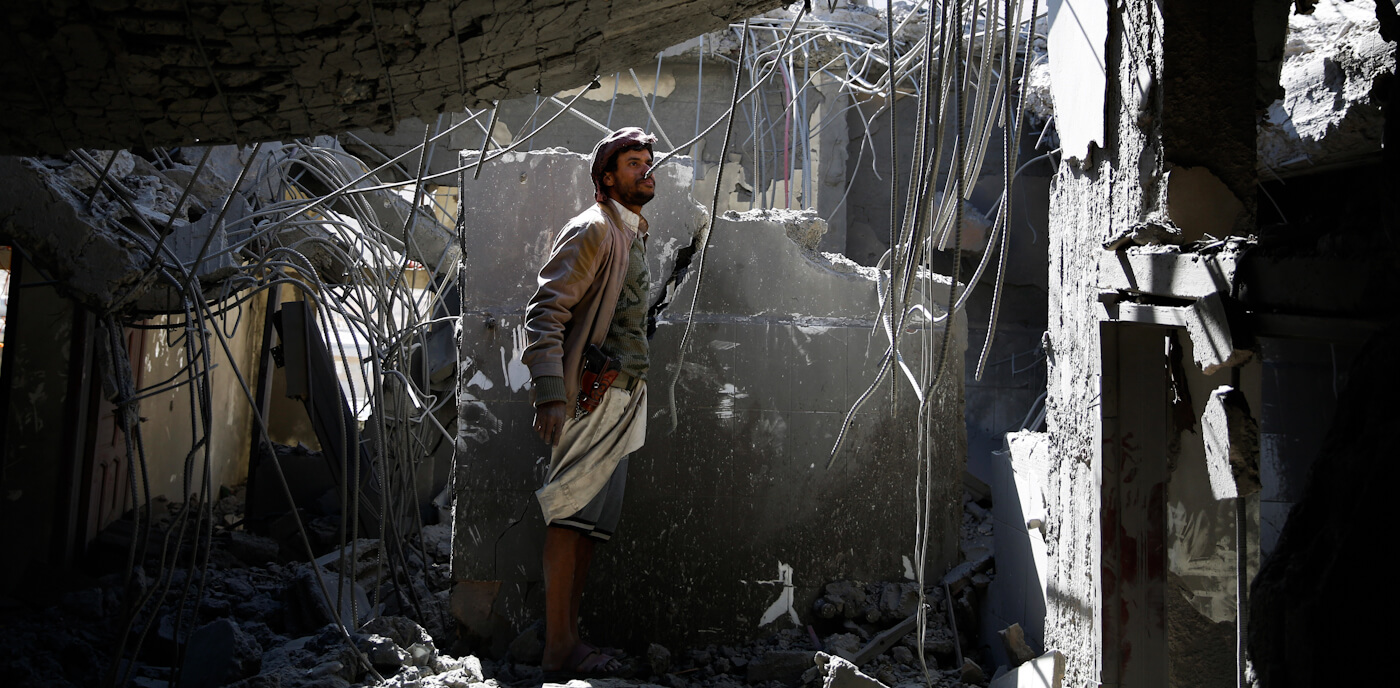SANA’A, YEMEN — Leaders of Yemen’s Houthi (Ansar Allah) movement traded barbs with U.S. President Donald Trump this week after the president made remarks renewing his support for the Saudi-led coalition war and expressed a desire for Iran to “get out of Yemen.”
On Tuesday, the U.S. president said during a White House cabinet meeting that “a lot of progress” had been made toward ending the volatile stand-off with Iran, adding that he wants Iran out of Yemen:
And we want them to get out of Yemen. I asked Secretary Kerry, through people, “Why didn’t you get them out of Yemen when you gave them $150 billion?” He said it was too complicated. Oh, great. So we want them to get out of Yemen. Syria is a different kind of a situation, but it’s all working out.”
Trump provided no evidence to back his assertion that Iranian personnel are operating in Yemen and so far no evidence has been provided by the U.S. to back the claim.
Mohammed Ali al-Houthi, a member of the Supreme Political Council and the Houthi’s second-in-command, responded to the U.S. president in a tweet on Tuesday, saying:
Trump should milk [referring to the United States’ lucrative financial deals with Saudi Arabia] the Gulf in his dirty game away from Yemen, his statements do not legitimize the illegal aggression, and his continuation of the aggression confirms the deliberateness of his criminality and violation of international law.”
Al-Houthi accused Trump of being a war criminal, a killer of Yemeni children and of supporting terrorist regimes. He wrote on Twitter that “Trump has failed in his battle with Iran in the Strait of Hormuz, and has returned to the Gulf through Yemen.”
Mohamed Abdulsalam, the spokesman for the Houthis, wrote on Twitter following Trump’s comments that what the U.S. president said contradicts reality and facts and does not deserve a response. Abdulsalam reminded Trump of the U.S.’ own involvement in Yemen, writing:
The war on the country [Yemen] was announced from Washington, massacres were committed with U.S. weapons and Congressional senators are demanding their country stop supporting the countries of the Coalition.”
Facts on the ground
Saudi Arabia launched its war on Yemen in March of 2015 under the leadership of Saudi Crown Prince Mohamed Bin Salman. Salman claimed his objective in launching the war was to roll back the Houthis and reinstate ousted former Yemeni president Abdrabbuh Mansur Hadi, who fled the country to Saudi Arabia following popular protests during the Arab Spring. From the moment the highly unpopular war began, Saudi officials have worked hard to frame it as a necessary step in liberating the Arab country from Iran, repeating the still unfounded claim that the Houthis are an Iranian proxy.

For their part, the Houthis have never denied their political alliance with Iran, one of the few countries to consistently and openly challenge the legitimacy of the now more than four-year-old Saudi-led war on Yemen. Yet, the Houthis and the Iranian government both insist that Iran has never sent troops, military advisors or weapons to the Houthis and the Saudi-led Coalition – despite its control over large swaths of Yemen and the presence of its U.S-backed intelligence apparatus in the country – has never been able to provide hard evidence of an Iranian presence on the ground.
As with any political alliance, a level of cooperation between Iran and the Houthis does exist. After the Houthis were successful in leading the movement to oust the Saudi-backed Hadi government from Yemen, Iran and the Houthis brokered a deal to begin weekly passenger flights between the two countries. The flights, which only lasted for one week, drew the ire of Saudi Arabia who subsequently used military force put an end to flights between Tehran and Sana’a and ultimately blockaded the Sana’a Airport completely, leading to a crippling humanitarian crisis. Houthi government figures still occasionally fly to Iran to attend talks, and some are thought to own property in the county.
A 2018 report by the United Nations Security Council accused Iran of illegally shipping fuel to the Houthi government in Yemen. The report claims that the fuel was then sold and the proceeds used to purchase weapons that the Houthis used in their fight against the Saudi-led coalition. UN experts say that by providing fuel to the Houthis, Iran is “violating a UN arms embargo” and “directly or indirectly providing missiles and drones to the Houthis.” If Iran indeed did supply fuel to the Houthis, the move would be unlikely to change the balance of power in the Yemen war as Saudi Arabia spent over $80 billion on advanced weapons purchases from the United States in 2018 alone. They also enjoy U.S logistical and intelligence support in its war on the country.

Houthi reliance on Tehran for weapons is also unnecessary as the country is so awash in weapons that the risk of attempting to smuggle them in from Iran would not only be a foolhardy venture for the Houthis, it would provide little benefit as the movement already has a sizable arsenal that it inherited from the government of former Houthi ally, the late Ali Abdullah Saleh.
There is, undoubtedly, a convergence of interests between the Houthis and Iran, including opposition to Israel’s internationally-recognized theft of Palestinian land and Saudi funding for extremist groups in Yemen and across the Middle East. However, Tehran’s support for the Houthis is limited to political, diplomatic and media support and the country’s influence in Yemen is marginal at best. There has been no evidence to show that Iran has any significant measure of influence over the Houthis’ decision-making. In fact, at the onset of its conflict with the Saudi-led coalition, the Houthis quickly deported the less than one hundred Iranian advisors that were present on the ground in Yemen, claiming their presence could hinder potential future negotiations with the Saudi coalition.
Fiercely independent: the Houthis’ grass roots
The Houthis, who refer to themselves as Ansar Allah, have always been proud and fiercely independent. Many take offense at the notion that their success in the struggle against the Saudi regime is rooted in foreign assistance rather than homegrown determination and grit. A look at the movement’s inception and subsequent growth seems to confirm that the latter is the case.
The group was first formed in the 1990s as a theological movement rooted in the Zaydi faith. While both U.S. and Gulf-sponsored media often paint the Houthi alliance with Iran as anchored by their shared Shia Muslim faith, Zaydis, who comprise forty percent of Yemen’s total population, are politically and theologically distinct from the Twelver branch of Shia Islam that is widely practiced in Iran. The Houthis passionately preserve both their faith and their political heritage, which has been a staple of Yemen’s identity for over a thousand years and has drawn inspiration from its ability to repel Yemen’s many would-be invaders.

The group’s transition from religious sect to political party, which today includes Yemenis from a variety of religious backgrounds, came in the form of opposition to U.S. and Saudi support for the woefully corrupt regime of former Yemeni president Ali Abdullah Saleh in the 1990s. It was not only the corruption of the Saleh regime that spurred the growth of Houthis but fears that his heavy reliance on foreign governments would undermine Yemen’s sovereignty.
Hussein Badreddin al-Houthi, the founder of the movement, laid the groundwork for the single most important operating principle of the Houthis. Badreddin said the following in the Malzem, the official doctrinal document on which the Houthi constitution is based:
Residents should support themselves by themselves for independence because any other party offers nothing but its price.”
Badreddin would later be assassinated by the Saudi-backed government of Saleh, sparking a years-long civil war.
According to the articles of the Houthi constitution which is heavily-based on the Malzem, external support to the Houthis is prohibited and criminalized if it is at all conditional. Support must be free of charge and not demand any influence over the movement or any member of the movement.
In fact, when the Houthis unveiled their National Vision to rebuild Yemen into a modern, stable and democratic state by 2030, many of the 175 goals set out in manifesto outlining the vision focused on independence, freedom and non-submission to guardianship or foreign influence. Iran was no exception.

According to the Houthis, direct Iranian intervention in their country would raise the risk of division within their Zaydi sect and would further inflame the current wave of Arab nationalism against them, an outcome they want to avoid.
Historically, Iran has had little bearing on Yemeni affairs. While it has long maintained a diplomatic presence in Sana’a, its influence in the two decades leading up to the Saudi-led war was marginal at best. Those two decades were rife with opportunity to peddle influence should a nation have desired to do so, with dozens of wars occurring sometimes simultaneously and often involving myriad foreign governments. Iran does not even recognize the current political council formed by Houthis and has no representatives in Sana’a or ambassadors to the Houthi government there.
A self-fulfilling prophecy
Thanks in large part to their resistance to the socio-economic and political oppression faced by Yemenis at the hands of former governments and to the influx of divisive Saudi-sponsored Salafist propaganda in the country, the Houthis have been able to transform their opposition to the Saleh government into a successful movement with broad local support capable of denying one of the world’s most well-funded militaries a decisive victory in Yemen.
It is the Houthis rejection of Saudi and U.S. interference in their country, participation in government and social services and support for Palestinian rights that have allowed the Houthis to thrive in Yemen, not Iranian support.
That being said, as both the United States and Saudi Arabia continue to wage war and economic blockades on both Yemen and Iran, it is likely that the Houthi’s political alliance with Iran will grow, turning the fears of both the Saudi Arabia and the United States into a self-fulfilling prophecy.
Feature photo | A Houthi man inspects his home damaged by Saudi airstrikes in Sana’a, Yemen, Jan. 4, 2016. Hani Mohammed | AP
Ahmed AbdulKareem is a Yemeni journalist. He covers the war in Yemen for MintPress News as well as local Yemeni media.


